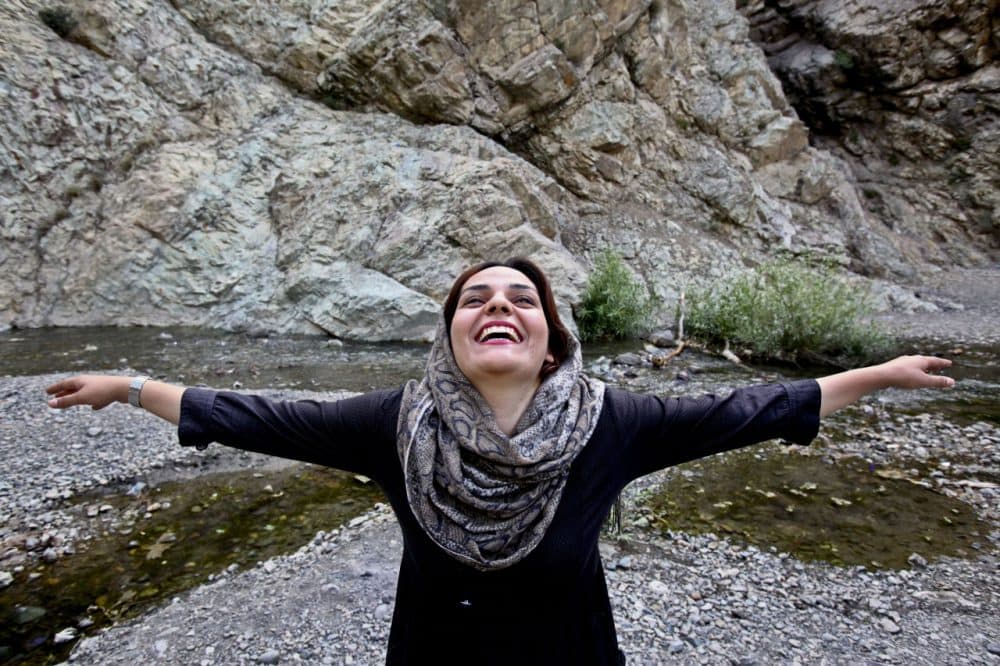Advertisement
What Makes Us Happy, And How Happiness Makes Us Healthy
Resume
We do a lot in our effort to be happy. Check out Amazon, and you'll find more than 2,000 titles with advice about what brings us happiness.
Another way we try to increase our happiness is with medication. Lots of medication. From Prozac to Paxil to Zoloft, there are more than 120 million prescriptions for anti-depressants out there.
Then, there's the illegal drug trade — a $400 billion industry that makes up about 8 percent of world trade, which many people pursue in their quest for happiness.
Dr. Nancy Etcoff will be speaking about happiness and beauty at HUBweek Tuesday.
Guests
Dr. Nancy Etcoff , cognitive researcher studying the science of happiness and beauty. She's also assistant clinical professor at Harvard Medical School and director of the program in aesthetics and well-being at Massachusetts General Hospital's department of psychiatry. She tweets @NancyEtcoff.
Interview Highlights
On what research says about how happy people are, really?
Dr. Nancy Etcoff: "I think we're doing about the same as ever. If you look across many nations and try to track global happiness, on a 10-point scale you'll find [Americans] between 6.5 and 7. So, we're not generally unhappy, we're not at the top of happiness. But people want to pursue happiness. Particularly in this country, people always want to be happier."
On people who try to medicate themselves toward happiness:
NE: "Anti-depressants have helped a certain number of people who are clinically depressed. ... Among those who are depressed, there is a bit of a placebo effect. I don't think one would take Prozac to become happy — one would take Prozac to become less depressed."
On the idea that becoming less miserable is not what will make us happy
NE: "We often think of them as on a continuum, so there's the pleasure-pain continuum. But, in fact, when you're less miserable ... — you know, someone's less depressed — but are they now happy? They're happy not to have the symptoms of depression. But happiness is about something else. It's about kind of a joy in living. It's about savoring experience. It's about having a certain vitality. And that's different from simply your symptom goes away, you're relieved, you're back to ordinary misery."
On the connection between nature, beauty and happiness:
NE: "There is more and more evidence about the effects of nature on happiness. [It's] a way of restoring our attention, sort of resetting our equilibrium, our physiology. I did a small study on flowers — it was a mood study. They didn't know this was part of the study, but they filled out mood questionaires for a week, we said, 'thank you so much, in another week we're going to give you a little gift.' We either gave them flowers or something else. Those who got flowers enjoyed them, looked at them in the morning, started to respond with more positive affect. And so people are now using flowers in hospitals as ways to speed recovery."
More
TED: Happiness And Its Surprises
- "Nancy Etcoff is part of a new vanguard of cognitive researchers asking: What makes us happy? Why do we like beautiful things? And how on earth did we evolve that way?"
Independent: Harvard Professor's Steps To Happiness
- "Savor the moment (Look forward to an exciting event you’ve planned, but most of all, savor the moment)
- Take control of your time (use your time to do the things that you love doing.)
- Act happy (if you act happy, it’ll have a positive effect and a happy mood will catch on)
- Exercise and make time for sleep
- Give time and attention to close relationships
- Be mindful"
Listeners: What makes you happy? We're looking for your thoughts, advice and stories of incredible experiences. Tell us in the comments.
This segment aired on October 6, 2015.